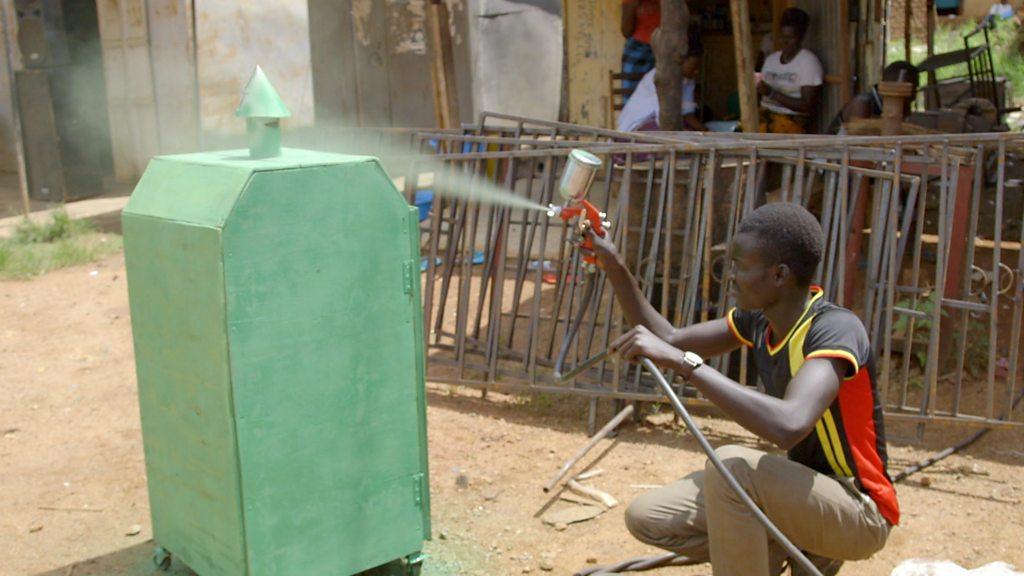Tackling food waste in Nigeria with an app
- Published
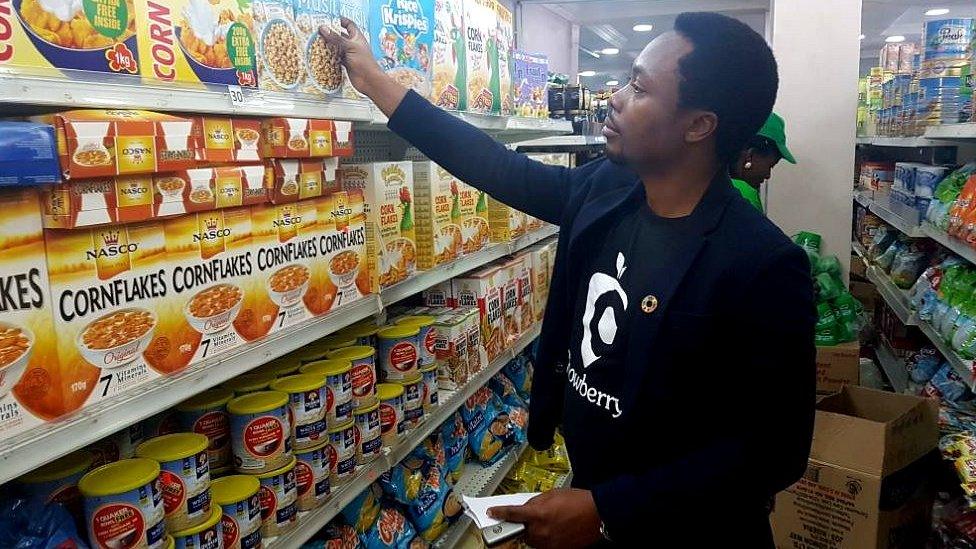
Oscar Ekponimo is the entrepreneur behind Chowberry
"Going without food for any person, for any child - it's destabilising, it shakes you to your core. I remember being a child and going without food and being able to have just one good meal in a day."
Oscar Ekponimo's drive comes from a childhood fuelled by hunger. When his father got sick and couldn't work, the whole family went hungry.
But now this tech entrepreneur in Nigeria's capital Abuja thinks he has the answer to the problem of food inequality.
He's the inventor of an app called Chowberry which connects people to supermarket food that would ordinarily end up in the bin.
It has already been taken up by 35 retailers, NGOs (non-government organisations) and other organisations in the country.
At a supermarket in Abuja, a sales assistant unloads shelves filled with semolina, a type of milled flour, into shopping trolleys. He's preparing the products for collection by Thrifty Slayer - a charity that has bought these discounted items via Chowberry.
Discount products
As we stand in one of the aisles, Oscar takes out a tablet to show me how the technology works. "We have a system on this app that allows retailers to put information about products that are about to expire.
"These products are deeply discounted because the products are reaching the end of their shelf life.
"The food would ordinarily be thrown away by the retailers, but with our system they have a way of saving their losses," he adds.
"At the same time NGOs are able to take this food at a very reasonable price and acquire more food for distribution."
Currently anyone can order food at a discount online, although there are 15 charities with priority access who are able to to order larger quantities.
Chowberry has a list of their preferences and sends them updates when it receives the type of food the charities need for their food distribution programmes.
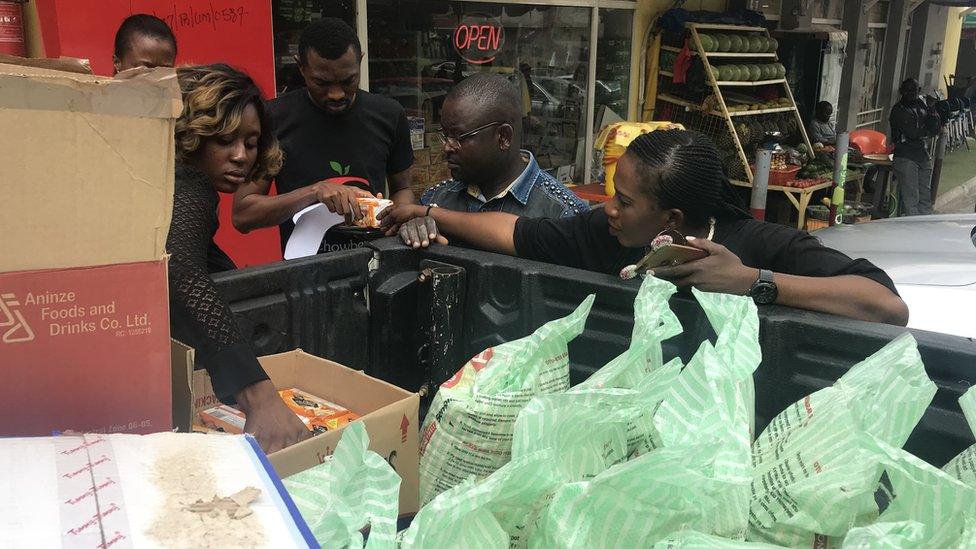
The discounted products would otherwise be wasted, contributing to food security challenges
The supermarket that Oscar is showing me round was an early adopter of Chowberry when it launched two years ago.
"Some of the shops we work with have said they've managed to save 80% of what they used to throw away," he tells me.
A study commissioned by the United Nations indicates that globally, one-third of food produced for consumption is lost or wasted.
This amounts to 1.3 billion tonnes a year. UN figures also suggest that one in nine of us across the globe go to bed on an empty stomach - despite there being enough food in the world.
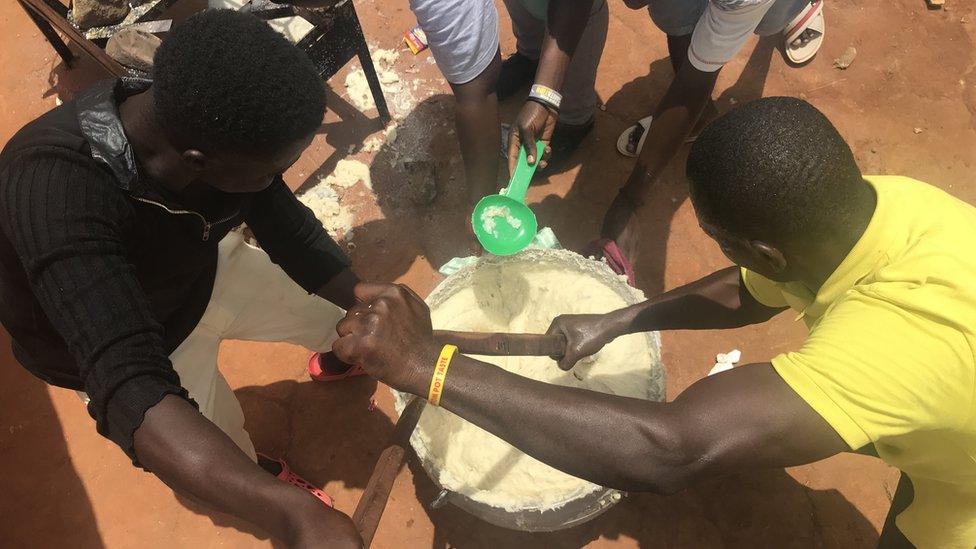
Oscar wants to help people on low incomes be able to feed themselves
Oscar's ability to relate to the problem is at the heart of his mission to reach those living on extremely low incomes, right at the bottom of the pyramid.


The BBC's Innovators series reveals innovative solutions to major challenges across South Asia and Africa
Learn more about BBC Innovators.

"They don't have access to smartphones, so the connecting entity is the NGOs," says Oscar.
Thrifty Slayer is one of the many charities and NGOs that buys discounted products for its food distribution programmes through the Chowberry app.
Its programmes are funded by selling donated second-hand clothing online but Ijeoma Nwizu, Thrifty Slayer's founder, says Chowberry helps the charity's funds go much further.
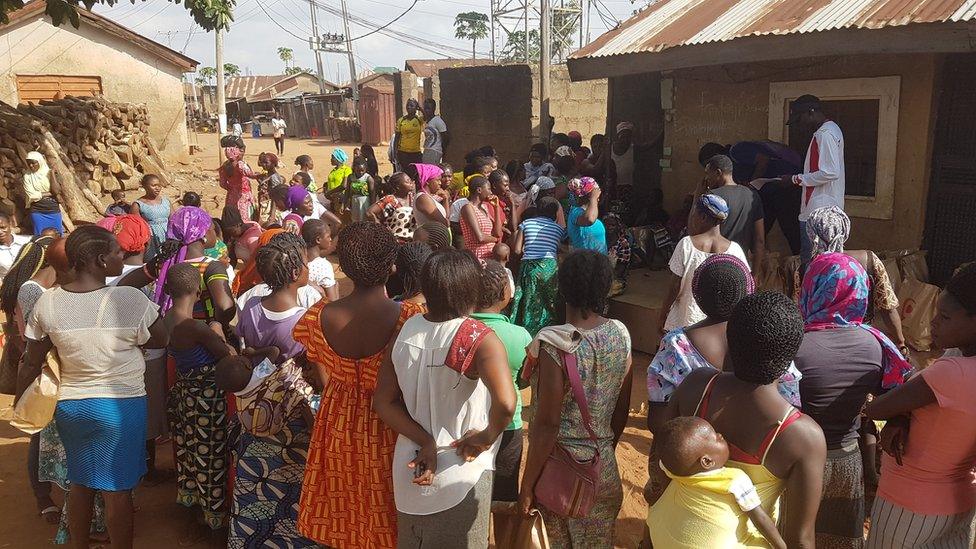
NGOs and charities help people in towns such as Pyakasa by offering lunches
"We started feeding about 40 people, but then the community kept growing. Now we feed them and neighbouring communities - about 200 people every Sunday," she says.
"As the numbers of people we feed increased we started to look for ways to keep our costs low. The good thing about partnering with Chowberry is the availability of food in the quantities we need them."
UN figures show over 14 million people in Nigeria are classified as undernourished.
Hunger is a major problem according to Amara Nwankpa, director of public policy at the Shehu Musa Yar'Adua Foundation, an organisation campaigning for food security.
"I think the challenges we face with food supply and access represents an opportunity for innovators. We have no choice but to innovate our way out of this situation," says Amara.
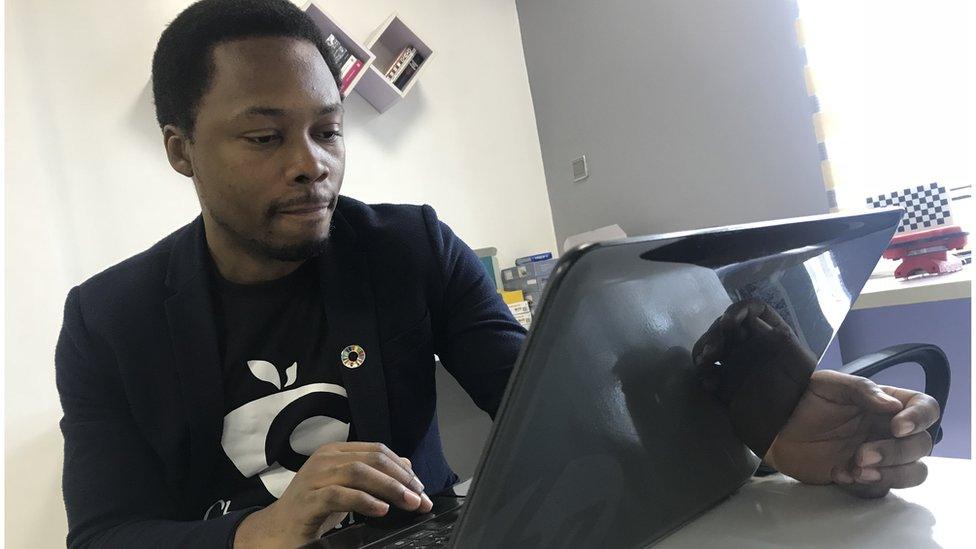
Oscar Ekponimo was driven by his own childhood hunger to set up the app
"Most times I get emotional about it. I get a sense of fulfilment that a simple idea can reach people in a real way. But the feelings are mixed," says Oscar during a visit to Pyakasa, a small dusty town surrounded by mountains on the outskirts of Abuja where a feeding programme is under way.
On the days we are there, around 50 people, mainly women and children, were queuing for lunch. We were told that for most of them, this would have been their biggest meal all week.
"The challenge is to scale up, that's where our work is cut out for the next few years," says Oscar. "I'm in it for the long haul, as long as there's the value chain of food there will always be food floating around."
Food waste is a huge problem and this entrepreneur has global aspirations for his simple solution.
He hopes that once it makes inroads in Nigeria and across Africa, it will go on to transform the lives of people around the world.
This BBC series was produced with funding from Bill & Melinda Gates Foundation
- Published14 August 2018
